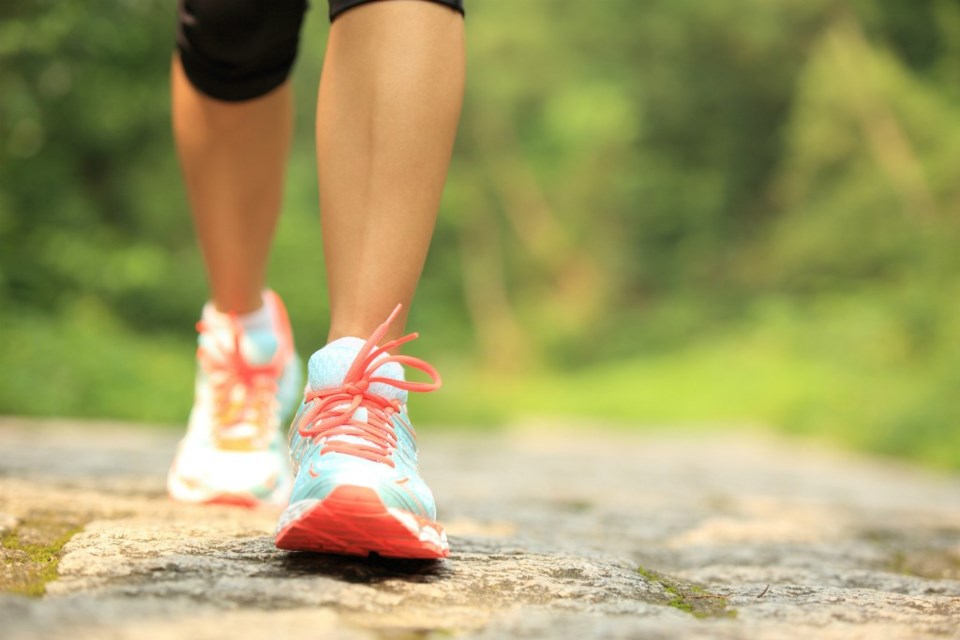Cooped up in homes and apartments is undoubtedly taking a toll on Canadians across the country as we cope with the coronavirus pandemic.
Especially when concerns about unemployment, the pausing of school and uncertainties about bill payments begin to mount, finding little moments of escape can be crucial.
Stepping out for some fresh air can make a huge difference by improving your mental and physical health during this period, said Craig Janes, director of the school of public health at the University of Waterloo.
“You don’t have to stay inside with your door locked. There’s all kinds of things you can do outside,” he said, adding if you are required to self-isolate for 14 days, you should follow the guidelines of public health.
“As long as you’re not in close contact with other people, [walking] great. You’re going to exercise, you’re going to feel better.”
While you should take advantage of the benefits of being outdoors, practicing social distancing requires you to keep your distance from others, if they aren’t members of your household, he said.
“Take the normal caution that you would take with any interpersonal interaction if you were at a grocery store,” he said.
That means keep at least two metres away from another person, he said, adding to be sure to wash your hands when you come home.
Can I walk with someone who I don’t live with?
Even if you and a friend are both feeling fine, people can share the virus without developing any symptoms, Janes said.
With over 700 cases of COVID-19, the illness caused by the novel coronavirus, in Canada and increasing every day, some with the virus contracted it through community transmission. That means they didn’t travel abroad, and still got sick through being around others.
“There are occasions where people just don’t feel sick, and it appears that they’ve infected others,” he said.
“You don’t know everywhere where everyone has been. Even if they’re close friends, they may not realize that they’ve picked up something,” he said.
For anyone you live with — like your child, or partner — walking with them is fine because you are already in the same household and are in contact with them, said Dr. Vera Etches, medical officer of health for Ottawa Public Health.
If a member of your household is sick or in quarantine, they should be staying indoors and isolating themselves from the rest of the family.
Keeping a distance of two metres with a friend may seem strange, but it is a way to enjoy the outdoors together, she said.
“You can still smile and talk with each other at a distance…it is awkward, but it might be a new thing to try out. The mental health benefits of getting outside are just so great,” she said.
However, Etches cautions against walking with someone who isn’t a member of your household and is also elderly, as mortality rates for COVID-19 are higher in those over 70 years old, she said.
“For social distancing to work, we have to treat every interaction with somebody else as a potential opportunity to pick up the virus or transmit the virus,” she said. Even though only a small percentage of Canada’s population has COVID-19, we need to social distance to keep it that way, she explained.
Modifying our routines and schedules to include time outside, even without others, can add some agency back into your life despite the current uncertain environment, said Janes.
“I always tell people that it’s okay to be scared…but it’s important that people know they can do something,” he said.
“And they can incorporate into their daily life and maybe going for a walk is just one of those things that help us all feel a little bit normal.”
Questions about COVID-19? Here are some things you need to know:
Health officials say the risk is low for Canadians but warn this could change quickly. They caution against all international travel. Returning travellers are asked to self-isolate for 14 days in case they develop symptoms and to prevent spreading the virus to others.
Symptoms can include fever, cough and difficulty breathing — very similar to a cold or flu. Some people can develop a more severe illness. People most at risk of this include older adults and people with severe chronic medical conditions like heart, lung or kidney disease. If you develop symptoms, contact public health authorities.
To prevent the virus from spreading, experts recommend frequent handwashing and coughing into your sleeve. And if you get sick, stay at home.
For full COVID-19 coverage from Global News, click here.
- Global News
